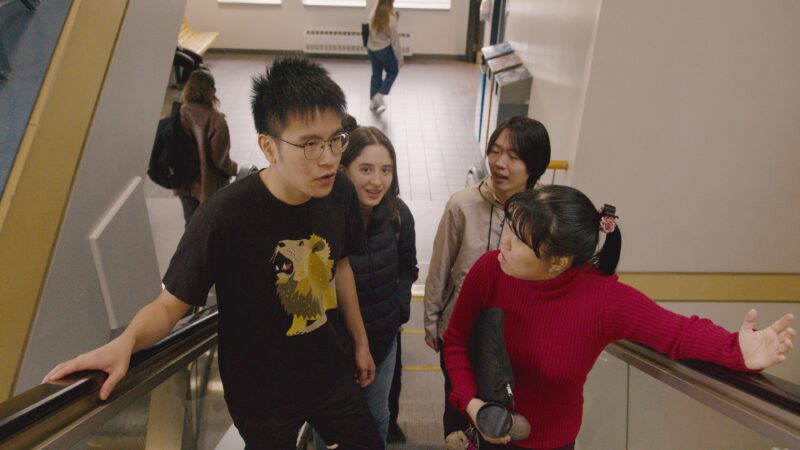Internship: The Bridge from Campus to Career
You have probably never heard of Victoria Christensen. Why would you? She’s not a graduate of Dawson College but of the Washington State University College of Nursing. So why are we mentioning her name? Victoria was the subject of a documentary film that chronicles the experience of a nursing student who entered a baccalaureate program using a wheelchair.
It makes one wonder what her journey would look like if she were a student in the Dawson College Nursing Class of 2026. As researchers from the Adaptech Research Network, we became curious about the internship experiences of students with disabilities enrolled in Dawson College health-related, social service and community recreational leadership programs – how inclusive are they?
Fortunately, we were able to secure funds through Entente Canada-Québec (ECQ) that allowed us to conduct an extensive literature review and interview key stakeholders, including students and faculty internship supervisors from a variety of programs, along with AccessAbility staff.
The 14 students interviewed were concerned about disclosure of their disabilities and access 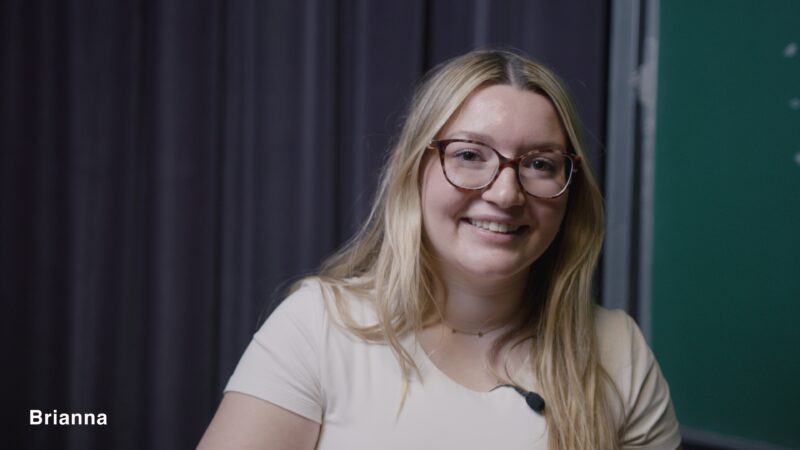 to reasonable accommodations. Breanna, a graduate of the Community Recreation and Leadership Training Program, is comfortable sharing her need for accommodations with others. She said: “This is me. This is something I’ve dealt with my whole life. I’ve had to voice what I’ve needed since I was 7. It’s made me a harder worker.”
to reasonable accommodations. Breanna, a graduate of the Community Recreation and Leadership Training Program, is comfortable sharing her need for accommodations with others. She said: “This is me. This is something I’ve dealt with my whole life. I’ve had to voice what I’ve needed since I was 7. It’s made me a harder worker.”
Our student participants viewed accommodations in internship settings as different from typical academic accommodations accessed during course work. As well, they were not always clear about what accommodations might be feasible in the clinical or fieldwork environment.
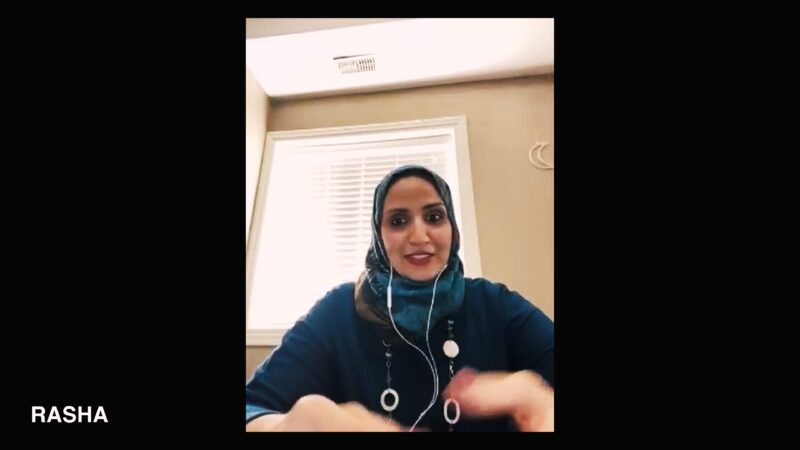 Rasha, a graduate of the Diagnostic Imaging Technology program, encouraged students with disabilities to see their potential: “Don’t be afraid. Don’t hold back. Don’t think that your disability will be a barrier to your success.”
Rasha, a graduate of the Diagnostic Imaging Technology program, encouraged students with disabilities to see their potential: “Don’t be afraid. Don’t hold back. Don’t think that your disability will be a barrier to your success.”
The eight faculty clinical/fieldwork supervisors we spoke with recognized that not all students are comfortable disclosing that they have a disability but emphasized that doing so is beneficial. The supervisors also reported that other significant barriers to inclusion include lack of familiarity about the technologies that students might find helpful during internships and whether the various internship sites would be receptive to their use.
Accordingly, Cathy Roy, a faculty supervisor in Physiotherapy Technology, said: “A lot of the tools that students are using as accessibility tools are really just efficiency and productivity tools that are useful for everybody.”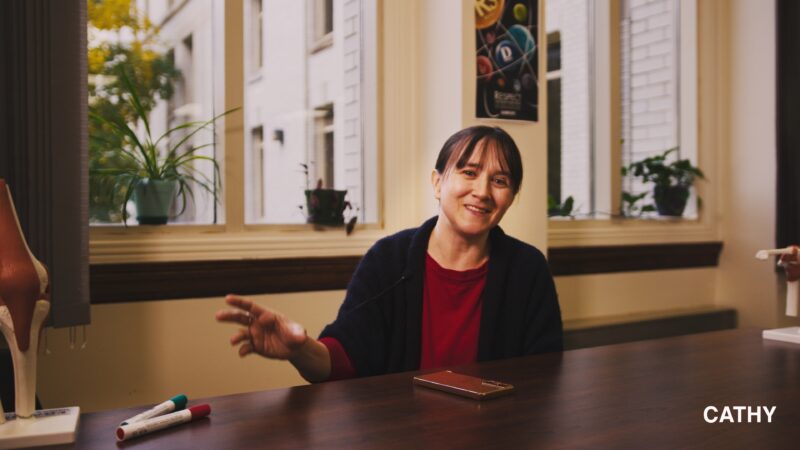 Understandably, faculty supervisors also had concerns about ensuring program competencies and patient safety. They urged that the various stakeholders, including students, sector deans, accessibility staff, and on-site supervisors, have an open line of communication through which they can collaborate to ensure the provision of accessibility supports in clinical/fieldwork settings.
Understandably, faculty supervisors also had concerns about ensuring program competencies and patient safety. They urged that the various stakeholders, including students, sector deans, accessibility staff, and on-site supervisors, have an open line of communication through which they can collaborate to ensure the provision of accessibility supports in clinical/fieldwork settings.
Lack of communication was the most significant barrier mentioned by the eight AccessAbility staff. They highlighted that disclosure is key to communication and the provision of accommodations. They also recognized that students might be afraid to do so for several reasons, including the need to prove themselves, and a fear that disclosing could prejudice their opportunity to complete the internship and meet graduation requirements. AccessAbility staff feel that there is a real need to provide resources to help faculty and on-site supervisors gain a greater understanding about how functional limitations might manifest in internship settings, as well as what accessibility supports may be helpful for students in those settings. For Guissou Iravani-Manesh, a pedagogical counsellor in the Student AccessAbility Centre, understanding how accommodations can be implemented in the fieldwork environment is key.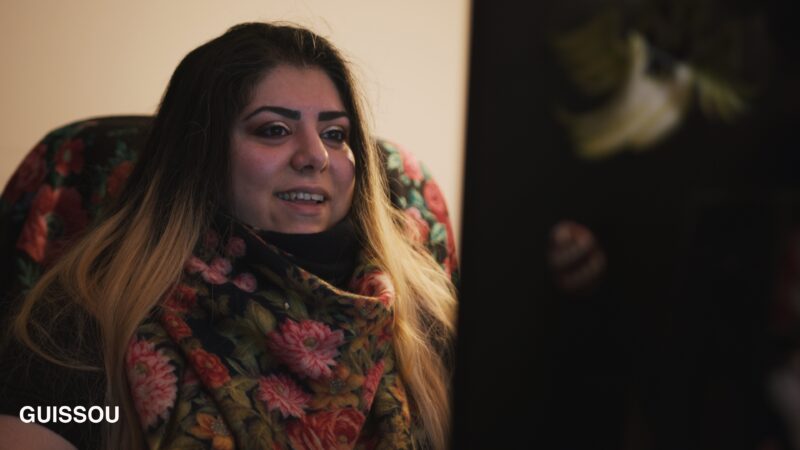 “Accommodations in the internship are not always the same as in the classroom. What is the internship setting like? What are the barriers for that student?”
“Accommodations in the internship are not always the same as in the classroom. What is the internship setting like? What are the barriers for that student?”
So, what is the Adaptech team doing with the information that has been gathered? The ECQ grant is not a traditional research grant that focuses on statistical analysis of data and publications in scholarly journals. It’s all about deliverables, tools that can be implemented in the educational environment to bring about change. Thus, the goal is to develop an Internship Toolkit for Students with Disabilities in Technical Programs.
We are in the process of constructing the toolkit and we’d like to give you a preview of what’s been completed. Along with annotated bibliographies of pertinent articles and legislation, there are tip sheets such as “Key Steps to Inclusion” and “Supporting Dyslexic Students in Clinical Practice”. Two sets of videos, one a series of video clips on mobile technologies and the other a pair of videos on the role of technology and on disclosure should be available before the end of this semester. We’ll use D News to update you as more tools are added.
Maybe we should heed the closing remarks of Victoria Christensen. “If there were a school out there that were going to admit a student with a disability, I would tell them to let that student in and just let that student learn and have all the opportunities they need to have to complete that degree. . . Open the door, get ’em a locker.” says Christensen.
Acknowledgement: Entente Canada-Quebec funded the research for this project
If you wish to access the toolkit, please use the following URL:
Submitted by: Alice Havel, Mary Jorgensen and Susie Wileman, Research Associates with the Adaptech Research Network

